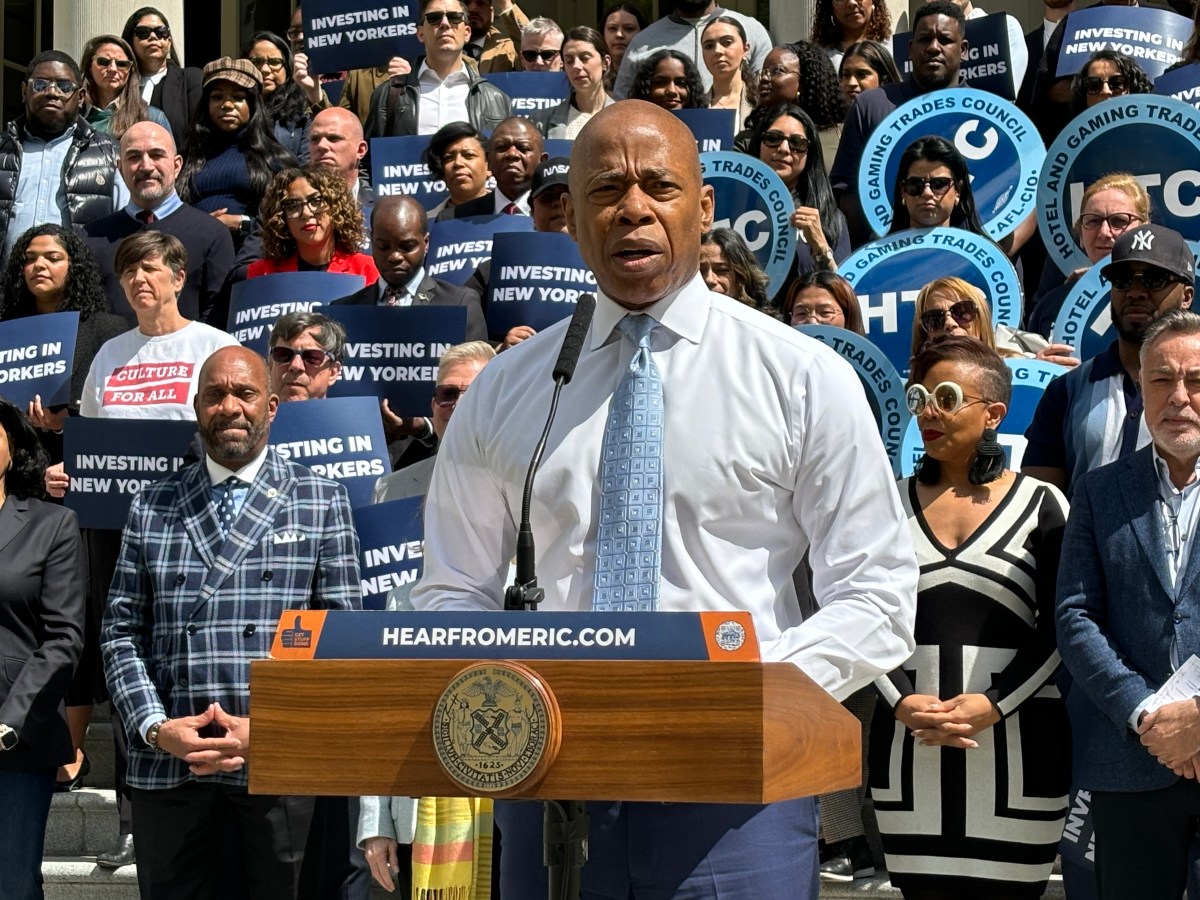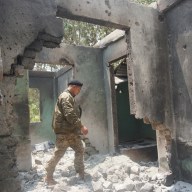 The Statue of Liberty would be shuttered in the event of a government shutdown.
The Statue of Liberty would be shuttered in the event of a government shutdown.
Credit: Spencer Platt/Getty Images
While the president, Senate and House of Representatives will continue to be paid in the event of a government shutdown, thousands of lower-level federal employees, senior citizens, veterans and current members of the armed services and military families in New York would not fare so well.
Even the city’s top tourist destinations, like the Statue of Liberty, Ellis Island and Grant’s Tomb, among many others, would be shuttered if the nation’s legislative body refuses to come to an agreement to keep the government running.
And if federal employees are furloughed, the Democratic Policy and Communications Center reported that 72,000 federal employees in New York could be forced to stay home and lose income for the duration of the shutdown. State Comptroller Thomas DiNapoli, however, placed that figure much higher, citing U.S. Bureau of Labor statistics of 116,000 federal employees in New York state and an additional 6,400 working out of Washington, D.C.
But State Comptroller Thomas DiNapoli has identified some specific programs that would be hurt by a shutdown, including the Temporary Assistance for Needy Families funding, which expired Sept. 30. DiNapoli expects the Low Income Home Energy Assistance Program, a discretionary initiative, to be affected as well. Federal funding for Medicaid Social Security income, and Foster Care and Adoption Assistance should continue through Dec. 31, DiNapoli said.
Food stamps through the Supplemental Nutrition Assistance Program were expected to be cut as of Sept. 30 with the farm bill they are tied to, but DiNapoli said information received late Monday indicates that the federal government has identified funds to continue SNAP through October. The Human Resources Administration confirmed that for at least one month, they will be able to continue to serve their clients through SNAP, Medicaid and cash assistance programs. The U.S. Department of Agriculture has apparently promised states that SNAP benefits will be paid through October and most likely beyond that.
While federal courts would continue operating normally for about 10 business days in the event of a shutdown, employees considered “non-essential” could be furloughed if the shutdown extends beyond the middle of October, though cases would continue to be heard.
And the Department of Defense estimated that a shutdown would send home nearly half of their civilian workforce, and leave the rest to work for delayed pay. There are 11,473 such civilian DOD workers in New York, as well as 53,794 service members who would have to remain on duty but have their pay delayed if the shutdown lasted longer than ten days. Younger service members often live paycheck-to-paycheck to begin with, the Democratic Policy and Communications Center reported, andmilitary members, veterans, and their families rely on more than $100 million in federally funded Supplemental Nutrition Assistance Program benefits.
Small businesses could also suffer due to delays in federal loans. According to the Small Business Administration, there are 440,685 small businesses in New York, and many rely on lines of credit that would be suspended in a federal government shutdown.
Though many federal agencies insist they are still unsure how a shutdown would affect their operations and staff, previous government shutdowns have negatively impacted Social Security checks, veterans’ benefits and educational assistance programs like Head Start, which serves 51,696 children in New York.
During the 1995-1996 shutdown, disability benefits and pension claims were delayed for over 400,000 veterans, and educational benefits for 170,000 veterans. New York is home to 885,796 veterans.
Current Social Security benefits would continue to be paid out in a shutdown, but new applications would be delayed and services for seniors could be severely limited. In the last shutdown, 112,000 claims for Social Security and disability benefits were not accepted, 212,000 applications for Social Security numbers were not taken and 800,000 callers to the Social Security Administration’s hotline were denied help. But the city Human Resources Administration said disability benefits through Social Security won’t be affected.
In 2012, almost 3.4 million people in New York received Social Security benefits.
While New Yorkers who depend on federal benefits and programs would certainly be affected, state officials say the impact of a short-term federal shutdown on New York state finances would be manageable.
Follow Danielle Tcholakian on Twitter @danielleiat
















